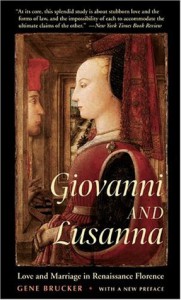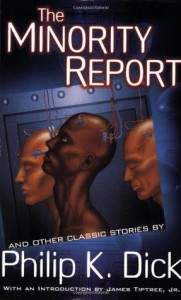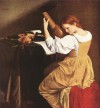Currently reading
 1
1
Some thoughts on the margins

Since I don't have the real margins to put them on.
Crowley says that the social structure of Venice was unusual for the time - the lack of agricultural land meant there was no landed nobility which made the feudal system impossible. But they did have a hierarchy based on how far back a family could trace its family tree within the city, so "original settlers" vs johnny-come-latelys of various degrees of lateness. Reminds me of citizens vs metics in ancient Athens.
Don't know where Crowley takes his figures from, but he states that the population of Venice at the time of the infamous "Constantinople" Crusade was 60 000 (and Paris as big) and another 10 000 Venetians were living in Constantinople - that's one hefty diasphora!
And of course Constaninople was the megapolis - 400 or 500 thousand (I think first European city to near this mark was Paris but not before 1700-s).
Also, Venetians made up about 2% of the city population in Constantinople, which is not quite as... stressing for the locals as the chroniclers would have us believe.
On a side note, I love all the crying and shedding of tears - that happens quite often in old chronicles and literature, but every time I encounter it I marvel at how abruptly the perception of (manly) dignity has changed with the industrial revolution. Before there was absolutely no shame in emotional outbursts provided there was significant cause.
The sight of the old doge, blind, ninety years old, undoubtedly close to the end of life, offering to join the crusade, led to mass crying: ‘many tears were shed because this noble man, if he had wanted, had plentiful reasons for staying at home. He was an old man, and though he had fine eyes in his head, he could see nothing,’ recorded Villehardouin. Descending from the pulpit, Dandolo was led weeping to the high altar
Or this (they did love theatrics - if there were none in real life, because we have no idea how these interactions transpired in the real life - they were sure to embellish their story accordingly. Note that this is a high-ranking Crousader writing, a seasoned warrior and military commander)
...the barons fell at their feet, all weeping, and said that they would not get up until those who were there promised not to leave them. And when the others saw this, they were moved to great compassion and wept bitterly when they saw their lords, their relatives and their friends fall at their feet.
More weeping:
Alexius resorted to his own emotional blackmail: ‘on bent knees and drenched in tears, he implored us as a supplicant that we should go with him to Constantinople’.
Gotta love the drama! And any and all of these sensitive guys could kill a tough modern cynic in a heartbeat and not lose a single night of sleep afterwards.
 2
2
To all the wolf (and werewolf) lovers out there - latest pic from my fav Russian nature photographer.He's married to an American WWF activist, Laura Williams. When not traveling, they live in a small Russian village near Bryansky forest national park (the woman is a hero, I tell you).
He specializes in bears and foxes (his are the loveliest foxes and sweetest bears ever), but does an occasional wolf or wolverine or sable too, all natives of Russia :)
He has a volunteer that translates his blog into English:
http://wildlife-photo-russia.blogspot.ru/
And here is his Russian blog (with more pictures - the translation lags behind up to half a year)
http://shpilenok.livejournal.com/
The fox wedding:
http://shpilenok.livejournal.com/57755.html
He has published a couple of books with photos.
And I'm not affiliated with either Laura or Igor, I'm just a quiet reader of his blog :)
 1
1
On Venetians in Byzantium, 12 C
With this wealth came arrogance – and resentment. ‘They came’, said a Byzantine chronicler, ‘in swarms and tribes, exchanging their city for Constantinople, whence they spread out across the empire.’ The tone of these remarks speaks a familiar language of xenophobia and economic fear of the immigrant. The upstart Italians, with their hats and their beardless faces, stood out sharply, both in manner and appearance, in the city streets. The charges levelled against them were many: they acted like citizens of a foreign power rather than loyal subjects of the empire; they were fanning out from their allotted quarter and were buying properties across the city; they cohabited with or married Greek women and led them away from the Orthodox faith; they stole the relics of saints; they were wealthy, arrogant, unruly, boorish, out of control. ‘Morally dissolute, vulgar … untrustworthy, with all the gross characteristics of seafaring people’, spluttered another Byzantine writer. A bishop of Salonica called them ‘marsh frogs’. The Venetians were becoming increasingly unpopular in the Byzantine Empire and they seemed to be everywhere.
Now some nine hundred years later there are no more Byzantines and only a handful of Venetians in their backwater museum of a city (undeniably and breathtakingly beautiful, though), but something never changes.
"Besides, they called me speckled frog."
"Worm—earth-worm, and yellow to boot."
Reading progress update: I've read 17 out of 823 pages.

Since Sir John Julius's History proved to be too dry for fast reading (my problem is probably that I am not conversant with the history of Venice pre-baroque era - but hey, that's the reason I picked the book in the first place). I'll leave it for bit-by-bit reading.
Now Roger Crowley in another case entirely.
And he came highly recommended as regards to the historical accuracy too, unlike many of his peers, popular history writers.
Embarkation was a central metaphor of the city’s life, endlessly repeated in art. In St Mark’s, a mosaic boat departs with swelling sails to carry the saint’s body to Venice; Carpaccio’s St Ursula treads a realistic gangplank into a rowing boat while the high-sided merchant ships wait off shore
That's the gangplank in question:

 4
4
The reading list of a melancholy teenage music lover
I'm reminded by local media that Jim Morrison would be 70 today - were he less unhappy with his life. That's really strange, the way he'd acquired the cult status here many years after his death (during his lifetime there'd been iron curtain and only a few crazy music fans would have had the information). In comparison, nobody's heard of Janis Joplin and Jimi Hendrix except for a small niche audience.
In what now seems almost another life - my late teens and early twenties - old Jim was a major influence on my reading habits. Heck, I read "Ulysses" while still in high school though it took me the longest time ever, half a year I think. I did enjoy it, actually - probably wouldn't have if I read it now. As it is, I remember it every time I start my period :)
Other books from the Morrison list:
Aldous Huxley "The Doors of Perception"
William Blake "Songs of Innocence and Songs of Experience"
and lesser known, from which the enterprising Morrison also filched titles and bits:
John Rechy "City of Night"
all you wanted and didn't want to know about the gay (and trans etc) underground (I would even say underbelly) of the US in the fifties - an engaging book that sometimes reads as a picaresque but ultimately depressing
Anais Nin "A Spy in the House of Love"
I was bored and couldn't understand why a seemingly intelligent woman always had sex on her mind when there were so many other interesting topics to think of, the meaning of life and everything the lack of it for example. I was a cerebral young thing.
Richard Farina "Been Down So Long"
This book is like a blur in my mind but I think it captures well the general feeling of sub-depression that is nothing like a clinical depression but more of a constant hum, background bleakness so aptly described by the title "been down so long it looks like up to me". All the better for fact that the hero isn't moping and languishing, he's too busy messing up his life but it doesn't give his life meaning, he's too intelligent to get really distracted.
And there were more of these books I probably would never go back to, but enough for my little tribute.
 2
2
Something about a real Renaissance woman

I really like this type of historical non-fiction (probably as much as I hate the postmodernist-ish crap a la "Rhetoric of the body as representation of power and gender in medieval France" - made this up from existing titles :) ) - a real life story based on documents.
(show spoiler)
Florence, first half of the 15C.This is the story of Lusanna, a lower-middle class widow who sued her aristocratic lover and, as she claimed, secret husband Giovanni for bigamy. He in turn, claimed there was no wedding and he'd been free to marry a daughter of another high-ranking family, as he did. She won in the local court but lost when Giovanni appealed to the higher court in Rome.
This story nicely ruins a couple of misconceptions many a modern reader (and even historian) unquestioningly believes in.
1) The assumption about downtrodden women who could not use legal system to defend themselves for this time and place is wrong. Granted, Lusanna lost her case in the end but that was due to her social status, not gender. And corruption, probably - while the local judge who just happened to be a future saint, St. Antonin, could not be bought off, his Roman superiors proved to be more amenable to Giovanni's appeal. It wouldn't be as clear-cut were Lusanna Giovanni's social equal. For example, when a Bardi woman filed for divorce (then termed annulment) from her Acciauoli husband, both of them of powerful families, she got the ruling in her favor.. And were Giovanni a respectable artisan like Lusanna's father and husband were, he would have had no influence in Rome. But then Lusanna probably wouldn't be so keen to snare him. :)
2) Lusanna did get what seems to be a fair trial in her own city, her inferior social position notwithstanding. Giovanni was sweating and influencing witnesses some of whom were his own clients and Lusanna wasn't what a modern court would call a reliable witness herself. She still won.
3) A widow of some means could live pretty much as she pleased and still be respectable. To flaunt her lovers would be unwise, but she didn't have to be particularly discreet either, just observe some conventions. There would be gossip but no shaming. Lusanna having had several lovers before Giovanni (as witnesses attested) didn't make her unfit wife or her claim to marriage invalid in the eyes of these witnesses or the Canon law personified in the Cardinal Antonin.
4) Lusanna didn't seem to have close family ties in the city of Florence, her late father being an immigrant from Croatia, and she had no children. Probably that's what that has made her so assertive - on one hand, she had no recourse but to fight her battles herself, on the other, she was not constricted by her family. Family gave protection and dominated an individual of any gender at the time. And, contrary to what I would have expected, a woman without a family's protection in Renaissance Florence still could seek that protection from the community she was part of and get it.
Generally speaking, it is an interesting case of what a tangle a marriage dispute could prove to be before the official (State and Church) registration was made obligatory for the marriage to be considered valid at all.
Improve his shining tail,
And pour the waters of the Nile
On every golden scale!
How cheerfully he seems to grin,
How neatly spreads his claws,
And welcomes little fishes in,
With gently smiling jaws!"
Lewis Carroll, "Alice in Wonderland"
Dream within a dream

Dreamt today (literally, I'm a vampire except for bloodsucking and immortality) of an advertisement playing within my dream - forgot what it was about but had an impression it was contextual, like you see on the net. It played off an image it got from my dream and on to its own agenda whatever it was.
For the record, I haven't been watching TV for many years so the inspiration didn't come from there.
If I'm not mistaken, the first to imagine personal advertisement was Philip Dick in the Minority Report (the only other scene from the movie I remember is the moment when the hero walkes into a store and a computer, having scanned his irises and recognized him, starts bombarding him with offers, using his name all the time). By the way, I'm sure Dick's prediction will come true in my lifetime.
Wonder if somebody used the idea of in-dream advertisement already - or am I the first to come up with it? Don't think so. Surely there's a book somewhere with dream ads too :)













 2
2








 1
1